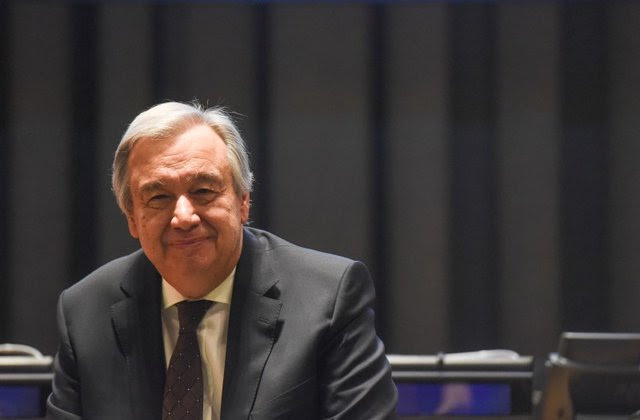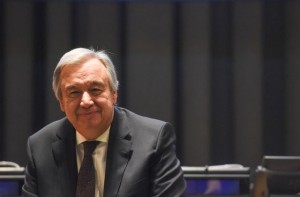US News & World Report
By Patrick Markey and Samia Errazzouki
U.N. Secretary-General Antonio Guterres has called for new talks on the decades-old Western Sahara conflict, saying negotiations should address proposals from both Morocco and the Polisario independence movement.
The U.N. call for a restart to talks came after months of tensions in the disputed territory, which Polisario says belongs to the Sahrawi people who fought a guerrilla war against Moroccan rule until a 1991 U.N.-backed ceasefire.
U.N. efforts have repeatedly failed to broker a settlement over the desert territory, contested since 1975 when the colonial power Spain left.
“I intend to propose that the negotiating process be relaunched with a new dynamic and a new spirit,” the U.N. chief said in his report presented for review to the Security Council on Monday.
“For progress to be made, the negotiations must be open to both parties’ proposals and ideas. Algeria and Mauritania, as neighboring countries, can and should make important contributions to this process.”
In initial reactions, a Moroccan foreign ministry source called the U.N. report more objective in tone than past ones, while a Polisario representative said the Sahrawi movement was ready for talks that were serious and without preconditions.
The UN report said talks must aim for a mutually acceptable political solution over the ultimate status of Western Sahara, including through agreement on “the nature and form of the exercise of self-determination”.
The 1991 ceasefire called for a U.N.-supported referendum on the region’s future, including the possibility of independence. The vote never happened.
Morocco has since made its own proposal for autonomy under the kingdom’s sovereignty, but Polisario insists on the U.N. referendum.
DIFFERENT VISIONS
“The fundamental difficulty is that each party has a different vision and reading of the history and documents that surround this conflict,” the report said.
Last year, Morocco clashed with the U.N. over its MINURSO peacekeeping mission after former U.N. chief Ban Ki-Moon visited Sahrawi refugee camps in southern Algeria. Rabat kicked out dozens of MINURSO staff from the Western Sahara, saying Ban was biased.
“The tone has clearly changed, and the parameters have taken into consideration a realistic approach that demonstrates the will to protect a certain degree of objectivity,” the foreign ministry source said of the new report, noting also the call for neighboring countries to participate.
“Everything has its time,” the source said when asked about whether the report would lead to participation in talks.
Polisario insists on the referendum with independence as an option and says only Morocco and Polisario should be at the negotiating table.
A Polisario representative said talks should not abandon progress made by former U.N. Western Sahara envoy Christopher Ross, who resigned last month.
“First MINURSO should return, and should be able to do its work to prepare the referendum,” the representative said. “We hope the new envoy will continue with what Ross started and not start from the beginning again.”
Since the end of fighting Western Sahara has effectively been split in two, part controlled by Morocco and part by Polisario forces, divided by a heavily mined earthen berm.
Last year, tensions spiked during a standoff in the remote Guerguerat area. U.N. peacekeepers stepped in after Moroccan gendarmerie went outside Moroccan-controlled areas in what they said was a road-clearing operation, prompting the mobilization of Polisario forces.
Morocco in February said it had withdrawn its troops from the buffer zone but Polisario says it will remain in the area as a precaution.
In his report, the U.N. chief called on the Security Council to “urge” the Polisario to “fully and unconditionally” withdraw from the Guerguerat buffer strip, noting that the “risk of an incident or accident remains high.”
(Additional reporting by Michelle Nichols in New York; Writing by Patrick Markey; Editing by Andrew Roche)








